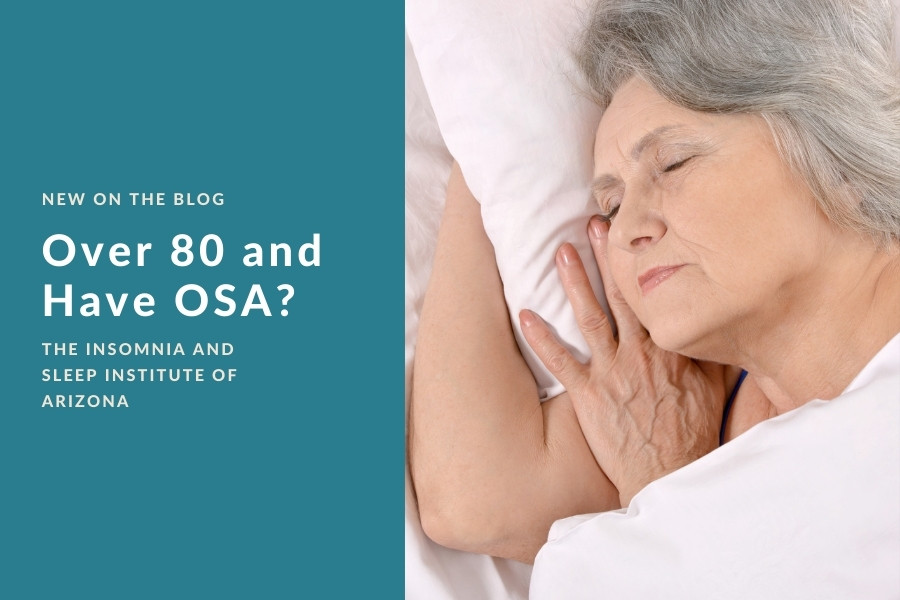CPAP has long been the gold standard for managing obstructive sleep apnea (OSA), the most common form of sleep apnea. At The Insomnia and Sleep Institute of Arizona, we are staffed by sleep specialists who concentrate on sleep medicine. We are an outcome-driven facility, and outcomes begin with the right diagnosis—which is why every consultation is with a sleep expert who can diagnose disorders. No referrals are necessary for consultations or treatments at our clinic.
Although CPAP works well for the vast majority of people, it is not inherently the right fit for everyone. Recently, a study from the University of Missouri School of Medicine, that was published in Sleep Medicine, found that CPAP therapy in patients 80+ might not be the right approach. In total, 369 patients 70+ diagnosed with OSA were examined. Approximately half of them underwent CPAP therapy for three months. A number of metrics were used to analyze the two groups, including the treatment’s effect on anxiety and depression, sleep-related quality of life, and how the therapy affected blood pressure. Next, the study was broken down into those 70 – 79 and 80+.
CPAP in Older Patients
According to the researchers, “Our findings suggest that CPAP treatment is not as effective in patients over 80 years of age with OSA when compared to younger patients.” It should be noted that “younger” here means 79 or younger (though a patient does not, of course, miraculously stop responding to CPAP the moment they turn 80). During the analysis, there was no improvement in any OSA-related symptoms during the testing of patients 80+, including mood-related symptoms, quality of life, or blood pressure.
There is a myriad of reasons why this might be, with one of the researchers noting that those over 80 usually have a more sedentary lifestyle. There are also many other co-morbidities that can affect quality of sleep at any age that might not be managed with CPAP. There is also the fact that in previous studies, it had been found that those 80+ don’t adhere to CPAP therapy correctly as compared to younger patients. Using CPAP every time a person sleeps, and using it correctly, is critical to getting optimal results. There are many reasons a person may forego using their CPAP optimally, one of the most common being ill-fitting equipment (which is why there are so many options for mask types and other accessories, as well as why an expert sleep specialist should work with you for fittings).
What to Do if You or Someone You Know is 80+ with OSA
The researchers stress that “Considering the growing population of eldering patients that is being referred for sleep consultation, large clinical trials are urgently needed to try to solve key questions related to the use of CPAP in patients over the age of 75 or 80.” Plus, baby boomers are in this demographic, which means there is a massive influx of people with OSA who will need treatment.
At The Insomnia and Sleep Institute, CPAP is the first line of management when it comes to OSA. However, for those who fail CPAP therapy, regardless of age, there are also other options. For example, the Inspire implant can be a great alternative for many patients, though it does require a minor outpatient surgery. Triple board-certified Dr. Ruchir P. Patel has worked closely with the Inspire makers, and can work with qualified patients who may be good candidates for this therapy.
OSA is linked to a variety of other conditions, both mental and physical. As someone enters their golden years, it is critically important to do everything possible to achieve and maintain health and quality of life. This is not possible with unaddressed OSA. If you or someone you love is 75+ and either has OSA or is suspected to have OSA, every day matters. Schedule your consultation with The Insomnia and Sleep Institute today by calling the office or completing the online contact form now.





